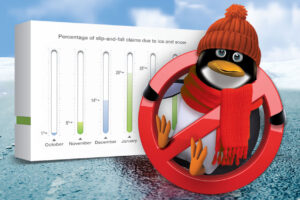August 7, 2019
Preventing and responding to burns in kitchen environments
If you cook often, you’ve probably been burned once or twice in your own kitchen. Now, imagine working in a kitchen where the pots are bigger, the heat is stronger and the pressure is higher. It’s easy to see why food service workers are at high risk for burns. According to the Bureau of Labor Statistics, 6,910 workers in the accommodation and food services industry lost time from work in 2017 due to burns caused by heat.
Common causes of burns in professional kitchens
Food service employees can get burned in a number of ways, including:
- Spilling hot water or hot oil on the skin
- Being engulfed by burning-hot steam
- Slipping and falling while carrying something hot
- Pulling a hot item out of the microwave without the proper protective equipment or lifting its lid too soon
- Touching a hot oven rack
How can kitchen workers prevent burns?
Follow these tips to prevent burns in restaurant and other kitchen environments:
- Use personal protective equipment, including forearm protection
- Use two people to handle awkward pans
- Use a cart to move hot objects
- Pay close attention to the task at hand
- When working with fryers, fill baskets no more than halfway, shake off excess ice crystals before placing fryer baskets in hot oil and follow directions when adding or disposing of fat or oil
- Use caution when preparing hot drinks or using machines that dispense hot liquids, keeping your hands out of the areas where liquids are dispensed
- Never use a wet towel as a potholder
- Clean up spills immediately and wear slip-resistant shoes to prevent slips and falls
This video from WorkSafeBC features food service workers talking about how they prevent burns and scalds:
Additional resources on preventing kitchen worker burns
- Supervisor Initiated Training: Burns — Food service
- Burns: First aid from the Mayo Clinic
- Burns and scalds from OSHA
- Easy Dos & Don’ts to prevent burns from OSHA
This is not intended to serve as legal advice for individual fact-specific legal cases or as a legal basis for your employment practices.





